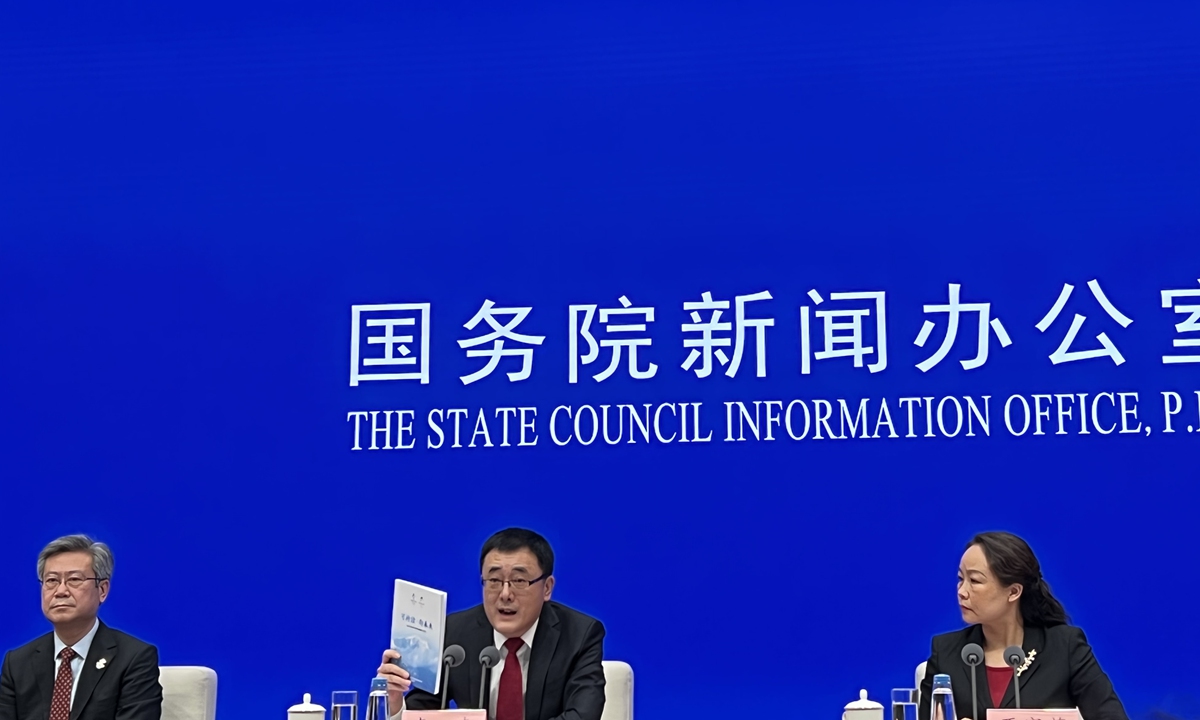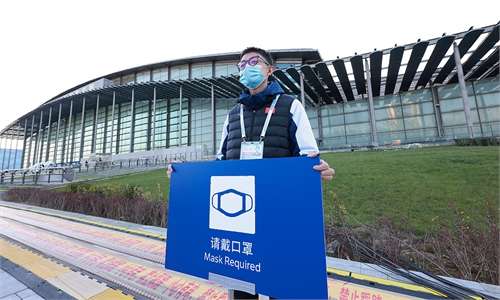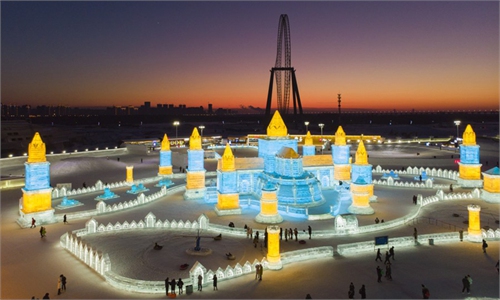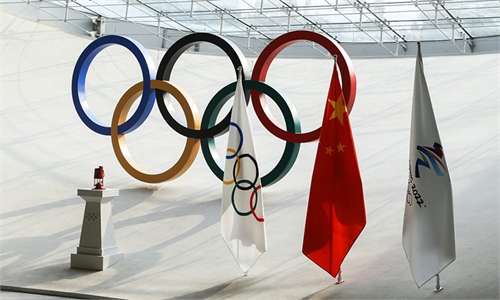Beijing 2022 achieves 98% sustainable commitments, to neutralize all carbon emissions during Games: report

Pree conference of the State Council Information Office.Photo:Li Xuanmin/GT
The Beijing 2022 Winter Olympics had achieved 98 percent of its sustainable development commitments as of September 30, 2021, with carbon emissions during the Games set to be fully neutralized, said a report released on Thursday, debunking the Western media's stepped-up hype over the environmental costs of the event and the alleged difficulty in verifying commitments.
Industry observers said the Games not only carries special weight in showcasing China's green pledges, as international society has prioritized carbon peaking and neutrality as development goals, but would lead to greener sports events.
According to the report, which is titled "Sustainable Development (Pre-competition)," China has delivered significant results on its sustainable development commitment, including all stadiums reaching green architecture standards, and the average PM2.5 concentration in Beijing in 2022 will be 45 percent lower than in 2012.
The report, outlining China's sustainable commitments, how its plans are being carried out, and the latest developments in areas including ecological protection, regional development and social progress, was released during a press conference held by the State Council Information Office on Thursday.
"The Beijing Winter Olympics has strictly carried out low-carbon management. The four ice stadiums for the Games are using new types of carbon dioxide refrigerants, and all stadiums will run entirely on green electricity," Li Sen, director general of the General Planning Department of the Beijing Organizing Committee for the 2022 Olympic and Paralympic Winter Games, said at the press briefing.
It is estimated that 400 million kilowatt-hours of green electricity will be consumed across Olympic venues in Beijing, the city's Yanqing district, and Zhangjiakou in North China's Hebei Province from June 2019 to the end of the Paralympic Winter Games.
That is equivalent to cutting burning 128,000 tons of standard coal and reducing emissions of 320,000 tons of carbon dioxide, officials said.
According to Li, China will also roll out a low-carbon transportation system, under which energy-efficient and clean-energy vehicles will account for more than 80 percent of the vehicles used during the Games.
Chinese President Xi Jinping inspected the venues for the Games on January 4, a month ahead of the opening ceremony.
During his visit to the National Speed Skating Oval, known as the "Ice Ribbon," Xi, also general secretary of the Communist Party of China Central Committee, put forward the idea of building a green, inclusive, open and clean Winter Olympic Games.
The Ice Ribbon, the only arena that has been newly built for the Games, is regarded an example of how China is delivering its promise of hosting green Games.
Using carbon dioxide to make ice for the entire process, it produces almost zero carbon emissions, and improves energy efficiency by more than 20 percent compared with conventional ice-making systems, the Global Times previously learned from the venue staffer.
Ji Ning, a sports marketing expert and CEO of Beijing-based Vning Cultural Media Co, told the Global Times on Thursday that China is on a trajectory to achieve its green commitment, and the evaluation process has been "complete and objective."
"Beijing has organized and coordinated the whole process to guarantee a timely delivery of its green goals, a model that could serve as a benchmark for other hosts of sports galas in the post-Olympic era," Ji said.
The release of the report came as the Winter Olympics draws near and Western media are badmouthing China as an "irresponsible" host that will worsen water woes and release more carbon dioxide than pledged.
In response, Yan Jiarong, spokesperson for the Beijing Organizing Committee, told the Global Times that there are a galaxy of highlights throughout the "green" Olympics.
"We have a long-term strategic sustainable plan that detailed 119 measures on three fronts: a positive impact on the environment, new regional development, and making life better," Yan said, adding that multiple stadiums that hosted the 2008 Beijing Olympics will also host the 2022 Winter Olympics, and China has plans for the future use of newly constructed facilities.
While some Western critics cast doubt over a system for artificial snow, which they touted as a waste of water resources, officials stressed that all international games use man-made snow to ensure snow quality, and the actual use of water for generating snow is limited.
"The water consumption for making snow represents 1.6 percent of local water consumption in Yanqing district, and in Zhangjiakou's Chongli district, the ratio is 9.8 percent," Yan said, adding that such consumption won't affect regional water safety or the environment.




